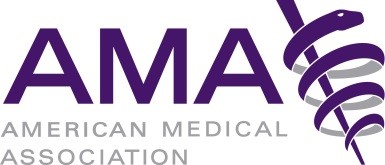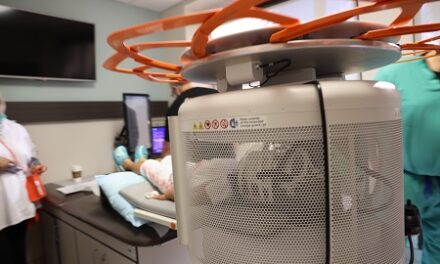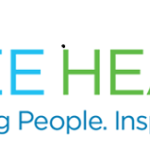December 6 2021 – With COVID-19 cases and hospitalizations increasing in the U.S., the Omicron variant emerging, and 47 million adults who are eligible for vaccination still unvaccinated, the American Medical Association (AMA) is urging support for the Occupational Safety and Health Administration’s (OSHA) COVID-19 Vaccination and Testing Emergency Temporary Standard to help ensure the health and safety of employees and bolster vaccination rates across the country. In a letter to OSHA, the AMA notes that widespread uptake of COVID-19 vaccines will be required to help limit severe illness, hospitalization, and death from COVID-19 and bring an end to the COVID-19 pandemic. Additionally, broader uptake of COVID-19 vaccines will be critical to help ease the ongoing strain on the nation’s health care system, which has been overburdened from the continually significant numbers of preventable COVID-19 hospitalizations.

The AMA wrote: “As the nation continues to work to end the COVID-19 pandemic, we must take every action possible to reduce the impacts of this deadly virus and reduce the ongoing strains on our health care system. The fastest and most direct path out of this pandemic is through vaccination. Billions of COVID-19 vaccines have been administered globally and these vaccines have proven overwhelmingly safe with minimal risk of adverse events and have demonstrated tremendous power to keep individuals safe from the most serious outcomes of this disease. With very limited medical contraindications to receiving the vaccine, eligible individuals should get vaccinated. Accordingly, with millions of Americans returning to the workplace, we strongly support OSHA’s Vaccination and Testing ETS as an important tool to help ensure the health and safety of employees and bolster vaccination rates across the country.”
The full text of the letter is below, and a PDF copy of the letter is available here.
Dear Assistant Secretary Parker:
On behalf of the physician and medical student members of the American Medical Association (AMA), I
am writing to offer our support of the Occupational Safety and Health Administration’s (OSHA)
COVID-19 Vaccination and Testing Emergency Temporary Standard (ETS). The AMA strongly
believes that widespread uptake of COVID-19 vaccines will be required to help limit severe illness,
hospitalization, and death from COVID-19 and bring an end to the COVID-19 pandemic.
Additionally, broader uptake of COVID-19 vaccines is critical to help ease the ongoing strain on our
health care system overburdened from the continually significant numbers of preventable COVID-19
hospitalizations.
AMA policy is broadly supportive of vaccine mandates with exemptions only in cases of medical
contraindications to receiving vaccines as recommended by the Advisory Committee on Immunization
Practices (ACIP), including COVID-19 vaccines. We have strongly supported COVID-19 vaccine
mandates for health care personnel and strongly support additional efforts to broaden those mandates to
include employees in non-medical work settings to help protect the workers from occupational exposure
to COVID-19. While we understand that some employees may have concerns about the safety and
efficacy of the COVID-19 vaccines, significant evidence demonstrates that the benefits of the vaccines
outweigh the limited risks associated with administration. COVID-19 vaccines produced by Pfizer-
BioNTech, Moderna, and Janssen either licensed or authorized for use in the U.S. have demonstrated
remarkable safety and efficacy profiles, with adverse events being rare. Additionally, there appear to be
few instances in which the vaccines would be contraindicated for medical reasons.
The three vaccines licensed/authorized for use in the United States have also proven to be remarkably
effective at reducing the rates of severe illness, hospitalization, and death from COVID-19, with
hospitalizations from COVID-19 occurring at rates nine to fifteen times (depending on age) greater
among unvaccinated individuals.1 While efficacy against symptomatic infection does appear to wane over
a number of months, efficacy against the most severe outcomes appears to remain high and available
“booster” doses can help return levels of protection seen immediately following the primary vaccination
series.2 Studies show that fully vaccinated individuals are less likely to become infected with
SARS-CoV-2, and infections are associated with less severe clinical outcomes. In addition, should a
vaccinated individual become infected with COVID-19, a growing body of evidence shows that they may
not be infectious for as long as an unvaccinated individual, further reducing risks of transmission in the
workplace.3 That said, concerns regarding the safety and efficacy profile of the available COVID-19
vaccines should not prohibit employers from mandating vaccination of their employees and we
therefore support OSHA’s efforts to ensure employee health and safety through the actions
outlined in the ETS.
With COVID-19 cases and hospitalizations again rising in the U.S. and 47 million adults who remain
unvaccinated, health care personnel and hospital systems continue to be overwhelmed. States are
reactivating crisis standards of care for staffing of hospital systems and calling for federal medical
staffing assistance to battle the latest surge. Severe COVID-19 infections are now largely preventable
with vaccination, and increased vaccination uptake is critical if we are to ease the burdens on our
overworked, overwhelmed, and overstressed health care workforce. Physicians, nurses, and others in the
health care workforce who are critical to the fight against COVID-19 are facing record levels of burnout,
with up to one in five health care workers having left their job since the start of the pandemic.4 Should
COVID-19 admissions continue at the rates we are seeing, we will continue to limit the ability of our
hospitals to treat non-COVID urgent and emergent conditions and will continue to see delays in routine,
yet essential, procedures and treatments. We will also face the risk of being left with a health care
workforce insufficient to face future threats should we continue to lose critical staff due to untenable
levels of preventable COVID-19 admissions at hospitals across the country. We believe that actions that
ultimately result in increased vaccination rates, such as employer vaccine mandates, will help ease the
significant burdens felt by our health care workers and help to ensure in-patient admissions are at
manageable levels that can allow broad access to care for COVID and non-COVID patients alike.
As the nation continues to work to end the COVID-19 pandemic, we must take every action possible to
reduce the impacts of this deadly virus and reduce the ongoing strains on our health care system. The
fastest and most direct path out of this pandemic is through vaccination. Billions of COVID-19 vaccines
have been administered globally and these vaccines have proven overwhelmingly safe with minimal risk
of adverse events and have demonstrated tremendous power to keep individuals safe from the most
serious outcomes of this disease. With very limited medical contraindications to receiving the vaccine,
eligible individuals should get vaccinated. Accordingly, with millions of Americans returning to the
workplace, we strongly support OSHA’s Vaccination and Testing ETS as an important tool to help
ensure the health and safety of employees and bolster vaccination rates across the country.
Should you wish to further discuss the AMA’s policy on vaccine mandates or ways in which we can work
together to increase vaccination uptake, please do not hesitate to reach out to Margaret Garikes, Vice
President of Federal Affairs, at margaret.garikes@ama-assn.org or 202-789-7409.
Sincerely,
James L. Madara, MD
AMA CEO & Executive Vice President



























